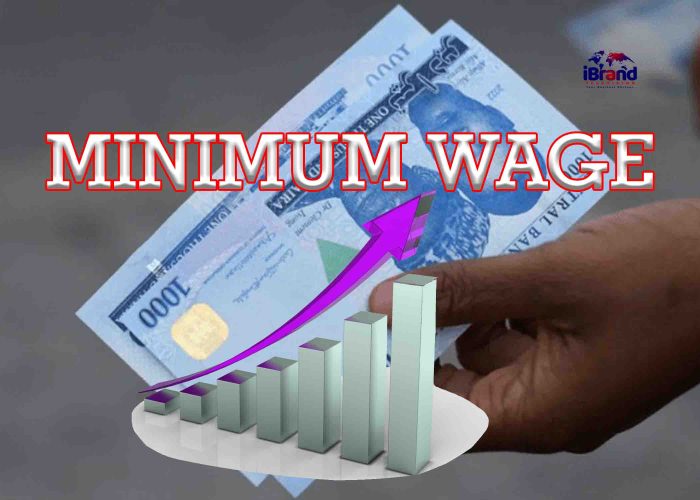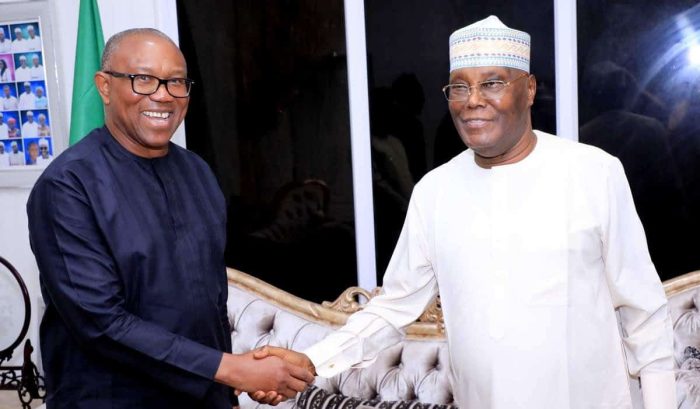The term ‘Minimum Wage’, has always been popular in Nigeria.
However, that popularity became more in the present administration of President Bola Tinubu.
The reason is very clear, and as a matter of fact, right before our very eyes.

You see, President Bola Tinubu started his administration with waving farewell to fuel subsidy, a move which has brought untold hardship and suffering to Nigerians.
It was on May 29, 2023.
The Swearing-In
Thousands of supporters were gathered at the Eagle Square in Abuja to witness the swearing in of Jagaban.
The flamboyant colours which sparked from the beautiful regalia adorn by the crowd of supporters looked like something we often see in the movies.
Indeed, it was a great day.
Alas, Tinubu was sworn in, and it was time for him to address his people for the first time as president.
As he mounted the podium, Nigerians grew anxious.
Fuel Subsidy Is Gone
They were eager to hear their president. They were eager to hear him tell them how he will grow the country and revive its dying economy.
But guess what?
“Fuel subsidy is gone”, Tinubu screamed in a loud and thunderous voice.
Since that moment, Nigeria, as well as Nigerians have never been the same.
Prices of goods and commodities saw a drastic and immediate increase.
Minimum Wage
Amidst the ongoing clamour for a substantial increase in the national minimum wage, President Bola Tinubu’s administration announced an increase from ₦30,000 to ₦48,000.
However, this adjustment has been met with stark opposition from the Nigeria Labour Congress (NLC).
The union deems the increase insufficient in light of the current economic climate, particularly following the cessation of electricity and fuel subsidies.
Many Nigerians have heard of the term ‘Minimum Wage’, some have even engaged in conversations about it.
But not everyone knows how it started, or when it started.
History Of minimum Wage Increase
This article delves into the historical progression of Nigeria’s minimum wage to provide context to the current disputes.
Initially set at ₦3,000 in 1999, the minimum wage saw its first significant rise to ₦7,500 in 2000.
It was under former President Olusegun Obasanjo’s regime.
It was later increased to ₦18,000 by the late former President Umar Musa Yar’adua in 2011.
However, in 2019 under former President Muhammadu Buhari, it was increased to ₦30,000.
Cost of Living
The most recent increase by President Tinubu has sparked a significant outcry from the labour sector.
As we speak, they now demand a minimum wage exceeding ₦600,000.
Did You Miss? May 1: FG Reveals When New Minimum Wage Payment Will Begin
According to them, the recent increment do not align with the escalated cost of living triggered by the government’s policy shifts.
This development follows the government’s decision to end fuel subsidies, which resulted in a fuel price surge from ₦189 per litre to over ₦600, exacerbating the financial strain on ordinary Nigerians.
Economic Pressure
The NLC has expressed its dissatisfaction with the current administration’s approach.
To the NLC, the minimal increase in the wage does not compensate for the heightened expenses in daily living costs, leaving workers under severe economic pressure.
See details of the country’s minimum wage from 1999 till date:
1999 — ₦3,000
2000 — ₦7,500, 150% increase
2011 — ₦18,000, 140% increase
2019 — ₦30,000, 66.7% increase
2024* — ₦48,000, 60% increase

